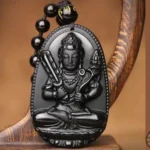Chăm Sóc Và Nuôi Dưỡng Mèo
Distance Converter
An American historian I know registers a widespread sense of bathos when he says, “Who would have imagined that the Simpson trial would be like the Kennedy assassination—that you’d remember where you were when the verdict was announced?” But everyone does, of course. The eminent sociologist William Julius Wilson was in the red-carpet lounge of a United Airlines terminal, the only black in a crowd of white travellers, and found himself as stunned and disturbed as they were. Wynton Marsalis, on tour with his band in California, recalls that “everybody was acting like they were above watching it, but then when it got to be ten o’clock—zoom, we said, ‘Put the verdict on!’ ” Spike Lee was with Jackie Robinson’s widow, Rachel, rummaging through a trunk filled with her husband’s belongings, in preparation for a bio-pic he’s making on the athlete. Jamaica Kincaid was sitting in her car in the parking lot of her local grocery store in Vermont, listening to the proceedings on National Public Radio, and she didn’t pull out until after they were over. I was teaching a literature seminar at Harvard from twelve to two, and watched the verdict with the class on a television set in the seminar room. That’s where I first saw the sort of racialized response that itself would fill television screens for the next few days: the white students looked aghast, and the black students cheered. “Maybe you should remind the students that this is a case about two people who were brutally slain, and not an occasion to celebrate,” my teaching assistant, a white woman, whispered to me.
Distance Converter





